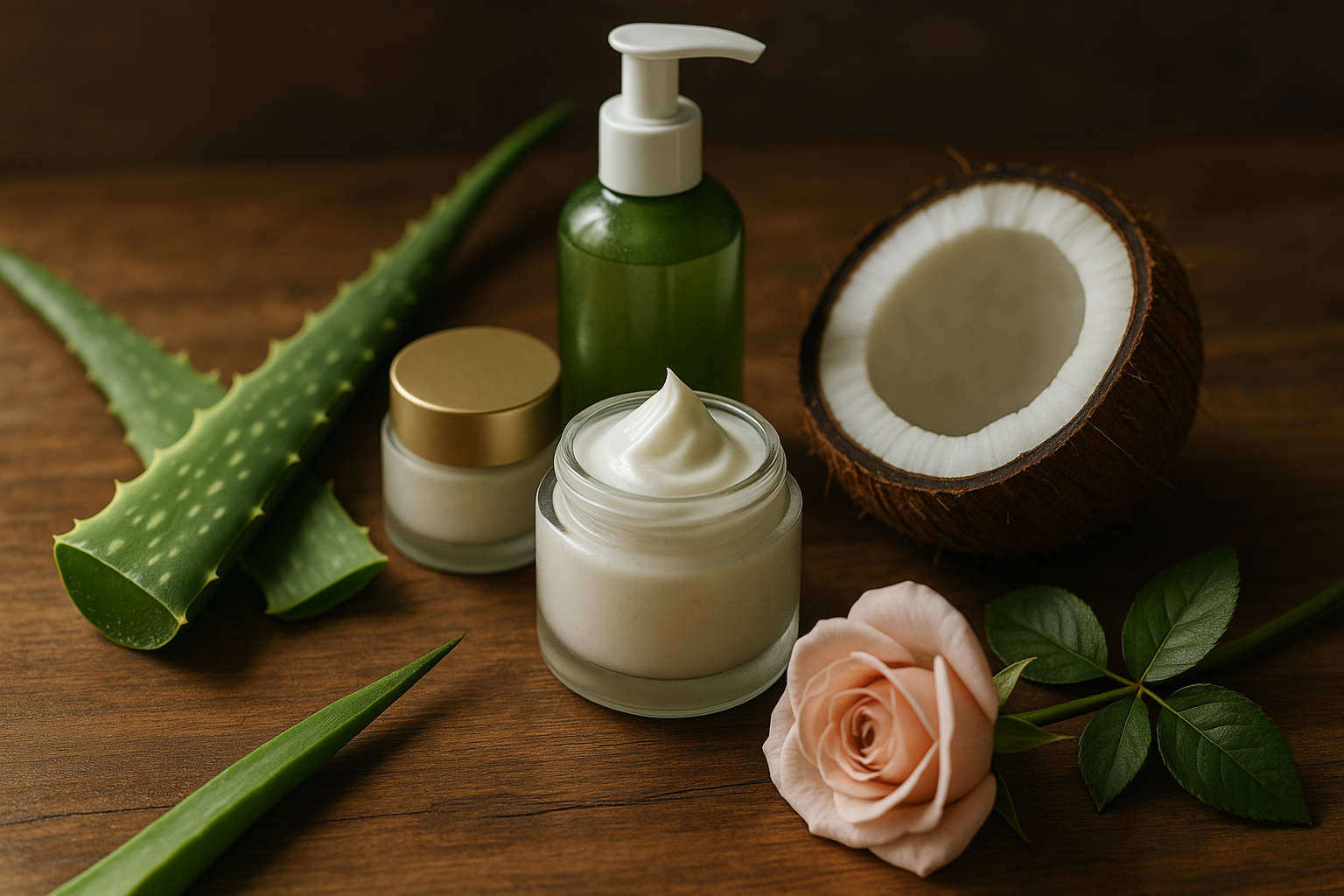The Resurgence of Plant-Based Beauty: A Green Revolution in the Cosmetic Industry
In the 21st century, the beauty industry has grown exponentially to become a multi-billion-dollar business. However, the industry's current trajectory did not arise in a vacuum. Its roots can be traced back to ancient civilizations where people used natural elements for beauty purposes. The Egyptians used kohl for eye makeup, the Greeks used olive oil as moisturizer, and the Indians used turmeric for skin brightening. These historical practices signify the long-standing relationship between nature and beauty, a relationship that is witnessing a renewed interest in the modern era.

From Chemical to Green: The Evolution of Beauty Industry
In the 20th century, the beauty industry largely relied on synthetic materials and chemicals to create products promising fast and noticeable results. However, these products often had adverse effects on the skin and the environment. The damaging impacts prompted a shift in consumer behavior, with an increased demand for natural, organic, and sustainable products.
Today, the ‘green beauty’ revolution is in full swing. According to a report by Grand View Research, the global organic personal care market is expected to reach $25.1 billion by 2025. This surge can be attributed to the growing consumer awareness about the harmful effects of chemicals, increased demand for eco-friendly products, and the rising importance of ethical consumerism.
Plant-Based Beauty: The New Industry Norm
Plant-based beauty products, made from natural plant sources, are becoming a central player in the beauty industry’s green revolution. These products are not only free from harmful chemicals but also offer numerous skin benefits due to their rich nutrient profile. For instance, plant-based products like aloe vera gel, chamomile cream, and rose water have anti-inflammatory properties, while others like green tea extract and pomegranate serum are potent antioxidants.
Moreover, plant-based beauty products are not limited to skincare. The trend has permeated into other beauty segments, including hair care, makeup, and perfumes. For example, plant-based hair products like coconut oil and avocado conditioner provide deep nourishment, improving hair health and texture.
The Market Impact and Relevance of Plant-Based Beauty
The plant-based beauty trend is not just a fad; it’s reshaping the beauty industry landscape. Brands, both established and start-ups, are harnessing the power of plant-based ingredients to create innovative products that cater to the conscious consumer. These companies are not only focusing on product formulation but also on sustainable packaging and ethical sourcing, thereby fostering a holistic approach to beauty.
Furthermore, the plant-based beauty trend is also influencing regulatory bodies. Countries like India and members of the European Union have introduced or tightened regulations related to the use of chemicals in beauty products, encouraging the shift towards natural alternatives.
The Future of Plant-Based Beauty
The plant-based beauty trend is not a passing wave but a revolution that’s here to stay. As consumers become more informed about the impact of their choices on their health and the environment, the demand for plant-based beauty products will only increase. However, the industry must also overcome challenges such as greenwashing, a practice where companies falsely claim their products to be eco-friendly or natural.
The beauty industry’s future lies in its past, where nature and beauty co-existed harmoniously. As we move forward, the resurgence of plant-based beauty offers a promising path towards a sustainable, ethical, and healthy beauty industry.
The article is an exploration of the plant-based beauty trend, delving into its historical context, current industry trends, and future projections. It provides a comprehensive understanding of the topic, making it accessible to a wide audience. The information presented is based on expert analysis and market research, ensuring credibility and relevance.




